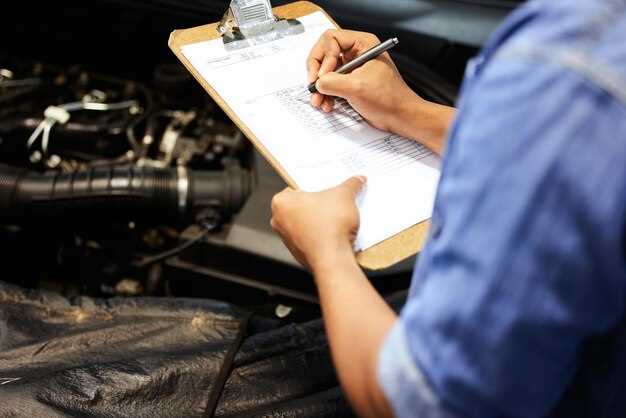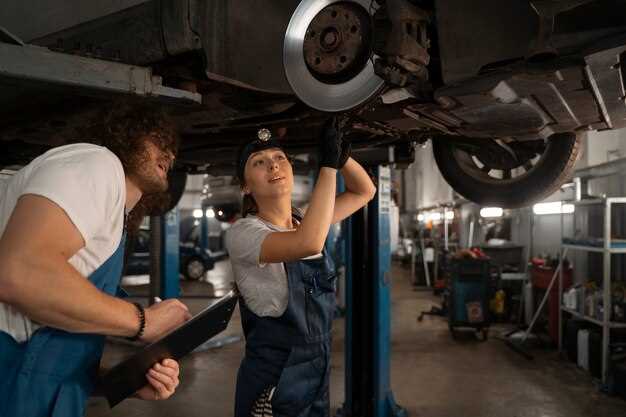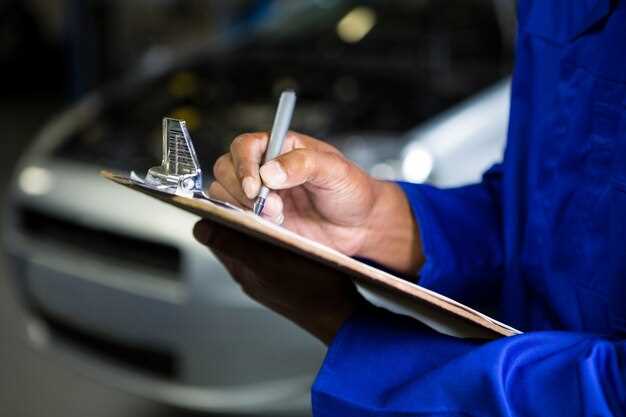
Regular inspection of your vehicle’s engine plays a crucial role in ensuring its longevity and optimal performance. Many vehicle owners underestimate the significance of routine checks, often leading to costly repairs and decreased reliability over time. By prioritizing engine inspections, you not only enhance the lifespan of your vehicle but also improve its overall efficiency.
Engines are complex systems that require diligent care and attention. A thorough inspection can uncover hidden issues, such as oil leaks, worn-out components, or build-up of grime, that can adversely affect performance. Detecting these problems early allows for timely maintenance, preventing more severe damage that could otherwise lead to significant downtime or even total engine failure.
Moreover, keeping your vehicle’s engine in top shape through regular inspections can lead to better fuel efficiency and lower emissions. This not only benefits the environment but also saves you money at the gas pump. An efficiently running engine is essential for a seamless driving experience, making routine checks an essential practice for all vehicle owners.
Key Components to Check During an Engine Inspection
Regular engine inspections are essential for maintaining the health of your vehicle. There are several key components that should be checked to ensure optimal performance and longevity of the engine.
First, the oil level and condition are critical. Engine oil lubricates moving parts and prevents wear. Check for proper oil levels and look for signs of contamination, such as a milky appearance, which may indicate coolant leakage.
Next, inspect the air filter. A clean air filter allows the engine to receive adequate airflow, enhancing fuel efficiency and performance. A clogged filter can restrict airflow, leading to reduced power and increased fuel consumption.
The spark plugs and ignition system are also vital. Worn or fouled spark plugs can cause misfires and poor engine performance. Inspecting these components ensures that combustion occurs efficiently, contributing to better fuel economy and smooth operation.
Additionally, the cooling system should be examined. Check the coolant level and inspect hoses and belts for signs of wear or leaks. Overheating can cause severe engine damage, making proper cooling system maintenance crucial.
Finally, look at the exhaust system for any leaks or blockages. A well-functioning exhaust system reduces emissions and improves engine efficiency. Any unusual noises from the exhaust can signal underlying issues that need to be addressed.
By focusing on these key components during an engine inspection, you can significantly enhance the health and longevity of your vehicle’s engine.
How Regular Inspections Impact Long-Term Vehicle Performance

Regular engine inspections are essential for maintaining optimal vehicle performance over time. These evaluations help identify potential issues before they escalate into significant problems, leading to improved efficiency and longevity.
- Preventative Maintenance: Routine inspections allow mechanics to detect minor issues early. Fixing these problems promptly can prevent extensive damage to the engine and other vehicle components.
- Enhanced Fuel Efficiency: A well-maintained engine operates more efficiently, resulting in better fuel economy. Regular checks ensure that all systems are functioning correctly, which can reduce fuel consumption.
- Emissions Control: Periodic inspections help ensure that the engine meets emissions standards. A vehicle with a well-maintained engine produces fewer pollutants, benefiting the environment and avoiding legal penalties.
- Increased Reliability: Regular inspections enhance the reliability of the vehicle. Drivers can trust that their vehicle will perform consistently, reducing the likelihood of unexpected breakdowns.
- Lower Repair Costs: By identifying and addressing issues during inspections, vehicle owners can avoid costly repairs that arise from neglected maintenance. Investing in regular inspections ultimately saves money.
- Improved Resale Value: A vehicle with a documented history of regular inspections and maintenance is more appealing to potential buyers. This can lead to a higher resale value compared to vehicles with unknown maintenance histories.
In summary, regular engine inspections significantly influence long-term vehicle performance by enhancing reliability, improving fuel efficiency, and reducing overall costs. Vehicle owners should prioritize these evaluations to ensure their vehicles remain in excellent condition for years to come.
Cost-Effective Strategies for Scheduling Engine Inspections

Regular engine inspections are crucial for maintaining the overall health of your vehicle. To maximize the benefits of these inspections while minimizing costs, consider implementing the following cost-effective strategies.
1. Follow Manufacturer Guidelines: Always refer to your vehicle’s owner manual for manufacturer-recommended inspection schedules. Adhering to these guidelines ensures that essential checks are performed at appropriate intervals, preventing costly repairs due to neglected maintenance.
2. Combine Inspections with Routine Services: Schedule engine inspections alongside other routine maintenance tasks, such as oil changes or tire rotations. This consolidation can save time and labor costs, making it more economical to keep your vehicle in optimal condition.
3. Join a Maintenance Program: Many automotive service centers offer maintenance programs that include regular inspections at a discounted rate. Participating in such programs not only reduces overall spending but also keeps you on track with your vehicle’s health.
4. Utilize Technology: Leverage mobile apps and vehicle diagnostic tools to monitor your engine’s performance between inspections. Early detection of issues can prevent more significant problems later, thus saving on expenses.
5. Create a Reminder System: Establish a reminder system for inspections to ensure they are conducted regularly. Utilize calendar alerts or schedule notifications to avoid missing appointments, as neglected inspections can lead to severe and expensive malfunctions.
By implementing these strategies, you can ensure that your vehicle receives timely engine inspections, thus enhancing its performance and longevity while keeping costs manageable.

